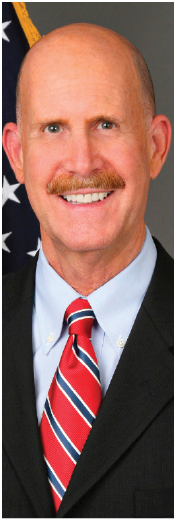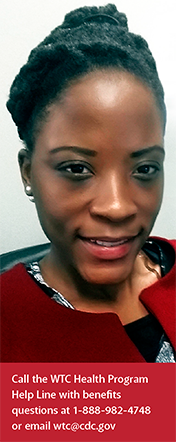A Message from Dr. John Howard, Administrator of the WTC Health Program
Dear Members,
The World Trade Center (WTC) Health Program is growing. We have seen a dramatic increase in the number of new applicants to the Program, especially in our Survivor population. Total Program enrollment is up 66% over the last year, while certifications for new health conditions are also increasing. Clearly, the need for WTC-related healthcare is still urgent 17 years after the disaster.
How is the WTC Health Program meeting the increased demand? We are:
Adding capacity.
To meet the needs of our growing membership, we have increased staff, opened a new clinic for Survivors, and expanded appointment times for initial health evaluations.
Improving digital tools and member resources.
We launched Facebook and Twitter accounts to share Program information quickly and easily. We also conducted a major redesign of our website, member handbook, and benefits counseling resources. Whether you are a member, applicant, researcher, or healthcare provider, you can now easily find what you need. Visit www.cdc.gov/wtc to see the changes.
Supporting 9/11 health research.
The WTC Health Program continues to support research into 9/11 health effects. Quality research helps us improve how we currently treat WTC-related health conditions, while planning for future needs. Read more on page 2 of this newsletter about our Research to Care Community Engagement event.
This annual newsletter offers a glimpse into the important work being done every day at our Clinical Centers of Excellence (CCE) and Nationwide Provider Network (NPN). We are also honored to share stories from our members, who remain the cornerstone of our Program. Thank you for entrusting us with your WTC-related healthcare.
In health,
John Howard, M.D.
Highlights
Changes to WTC Pharmacy Services
In April 2018, the WTC Health Program changed its home delivery pharmacy services to OptumRx and BriovaRx, partners with the Program Pharmacy Benefit Manager Optum. OptumRx fills prescriptions for non-specialty medications, while BriovaRx fills prescriptions for specialty medications. Specialty medications require special handling and may be prescribed for conditions including cancer and transplants. Home delivery pharmacies mail medications conveniently to your home or location of choice, so there is no need to travel to the pharmacy. If you would like to get medications through home delivery, you will need to complete enrollment by calling OptumRx and/or BriovaRx.
To contact OptumRx or BriovaRx directly, please call:
OptumRx Pharmacy (non-specialty medications) - 855-855-8752
BriovaRx Pharmacy (specialty medications) - 855-427-4682
Also, letters have been sent in the mail to let you know of upcoming changes to coverage of over the counter medication. These changes will be in effect on December 1, 2018. If you have questions about your coverage, please contact your CCE/NPN.
Learn more at http://www.cdc.gov/wtc/pharmacy.html or by contacting your CCE or NPN health care provider.
Digital Updates
Redesigned website: Our website has a new look! The member handbook, past newsletters, Program statistics, application information, and more are now easier to find, whether on a desktop or smartphone. Check it out at www.cdc.gov/wtc
Facebook and Twitter: We’ve launched Facebook and Twitter accounts to provide you with the latest in Program news, updates, health tips, resources, and events. We welcome your comments, likes, and shares!
Facebook: Search @WTCHealthProgram or visit facebook.com/WTCHealthProgram
Twitter: Follow @WTCHealthPrgm or visit twitter.com/WTCHealthPrgm
Please note that these accounts are intended for general information purposes only. To protect your privacy, contact the Call Center for benefit questions or the CCE/NPN for questions related to your care.
OASIS Online Application System: Do you know someone who may be eligible for the WTC Health Program? Tell them to use our online application system, OASIS! Submitting your application online is quicker and easier than mail or fax, and reduces processing time. Access OASIS at oasis.cdc.gov.
New Clinic for Initial Health Evaluations for our Survivor Members
The WTC Health Program has been working to address the scheduling delays for initial health evaluations among newly enrolled survivors. To increase the number of appointments for survivors, the Program has opened a new clinic at 156 William Street in Lower Manhattan. The clinic will provide initial health evaluations and coordinate covered treatment with WTC providers in the New York metropolitan area for survivors with certified (approved) WTC-related health conditions.
We are aware that some members have been waiting for an extended amount of time and will schedule based on enrollment dates, so that those members who have been waiting the longest will be seen first. The WTC Health Program thanks our Survivor population for being patient during this time. For more information on the William Street Clinic, please visit the News section on the main page of our web site: https://www.cdc.gov/wtc/wsc

Highlights from the Community Engagement Event
Beyond providing direct medical care, the WTC Health Program also sponsors research into the health effects of the September 11th terrorist attacks. Our Research to Care philosophy operates at the intersection of these important functions, as 9/11 health resea rch helps improve the medical care we provide to members.
On October 21, 2017, the WTC Health Program hosted our first Research to Care Community Engagement Event at the New York University Langone Medical Center. Nearly 200 members and their families h eard from medical scientists on the frontlines of 9/11 health research.
The day began with remarks from the Administrator of the WT C Health Program Dr. John Howard, followed by individual research presentations. Experts shared their latest findings on WTC-related breathing disorders, mental health, cancer, and children’s health. Presen ters also provided a fact sheet to summarize their research findings.
Later in the day, attendees had the opportunity to ask 9/11 health researchers questions in smaller sessions, including how member health data advances research and member care. The event concluded with a wellness session that offered practical advice on topics such as self-care, relaxation, and sleep.
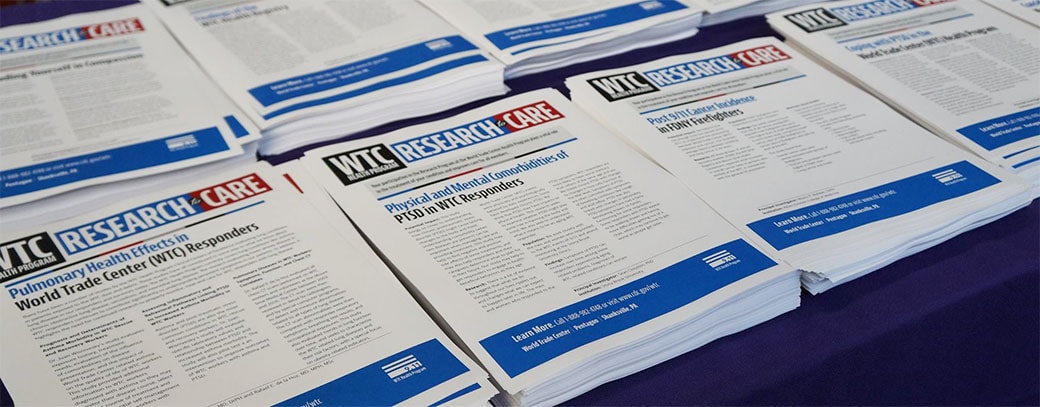
Participants said:
It was nice to hear from the researchers themselves and learn which diseases are more likely than others.
Each presentation was filled with easily accessible facts and information [about] the health impacts of WTC exposures.
Finally, mental health is not demonized or considered not significant. Thank you for your work and recognition that mental health is relevant.
This event was the first of its kind and by all accounts a success! You can watch the individual researcher presentations, read transcripts, and download the study fact sheets at https://wwwn.cdc.gov/ResearchGateway/R2C
Presenters Included
- Robert Brackbill, PhD, MPH - NYC Dept. of Health and Mental Hygiene
- Sean Clouston, PhD - Stony Brook University
- Michael Crane, MD, MPH - Icahn School of Medicine at Mount Sinai
- Laura Crowley, MD - Icahn School of Medicine at Mount Sinai
- Adriana Feder, MD - Icahn School of Medicine at Mount Sinai
- Lucia Ferri, PhD - NYU School of Medicine
- Roberto Lucchini, MD - Icahn School of Medicine at Mount Sinai
- Steven Markowitz, MD - City University of New York
- David Prezant, MD - FDNY
- Joan Reibman, MD, PhD - NYU School of Medicine
- Leonardo Trasande, MD - NYU School of Medicine
- Mayris Webber, DrPH - Albert Einstein College of Medicine
Free CME/CE Credits Available!
You can earn free continuing medical education (CME) or continuing education (CE) credits for viewing the Research to Care presentations. Visit www.cdc.gov/ wtc/training.html to learn more.
Mind-Body Medicine
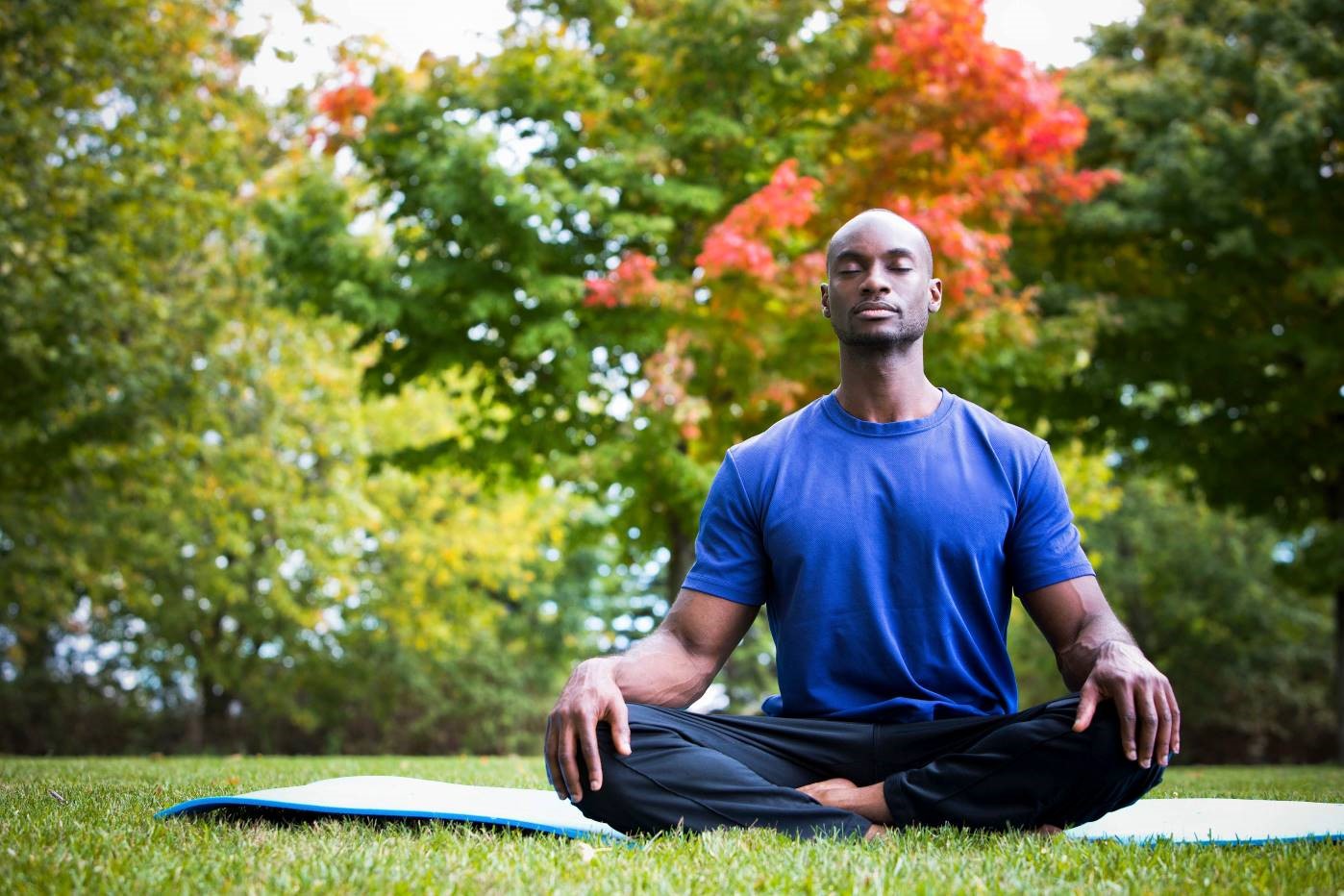
New York University study teaches responders a simple, high tech way to manage stress
How well do you cope with day-to-day stress? Knowing your heart rate variability might provide some clues. Heart rate variability measures changes in the time between heartbeats, as healthy heart beats also contain healthy irregularities. Low heart rate variability—or fewer changes between heartbeats—can be a sign of chronic stress. People with low heart rate variability may be at higher risk for mental health disorders like anxiety, depression, and post-traumatic stress disorder (PTSD). It is also linked to problems with sleep, relationships, and the ability to focus.
Is there a way to improve your heart rate variability and reduce the impact of chronic stress? Responders at the New York University (NYU) CCE are learning how. During their initial assessment, members presenting for mental health treatment wear a light ear clip that measures changes in blood flow to the ear during two minutes of paced and rested breathing. Trained CCE staff measure members’ heart rate variability and then explain what their score may mean. Members then learn simple breathing exercises that can help improve their score. Exercising regularly, maintaining strong social connections, and reducing alcohol and tobacco use can also improve heart rate variability scores and promote better health.
Data from the NYU CCE showed that 88% of participating responders had low heart rate variability (consistent with high stress), but learning simple breathing exercises increased their short-term heart rate variability scores by 55%. Longer term, follow-up assessments found that members who learned about their heart rate variability reported engaging in healthy lifestyle behaviors and demonstrated a 13% increase in the average heart rate variability scores. This project shows that using a simple tool like heart rate variability can help members improve their health. Conversely, high heart rate variability is associated with increased resilience and overall health.
Extra Support When You Need It All CCEs and the NPN offer unique tools, resources, and services to help members manage their health. This profile from the NYU CCE is just one example. As a member of the WTC Health Program, you have access to researchbased treatments that providers developed specifically for the needs of our members. Talk to your CCE or NPN provider to learn more about their support services.
Member Story
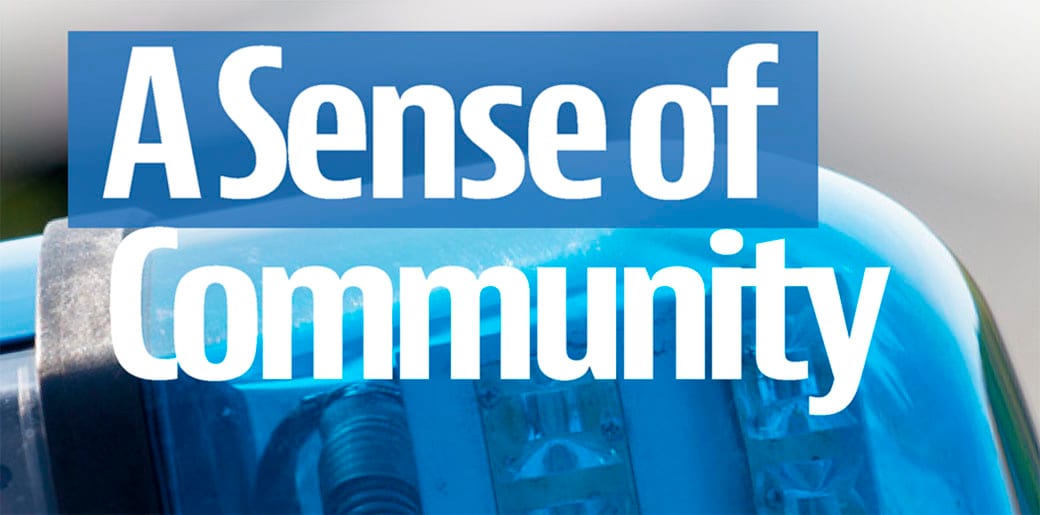
By: Meghan R. Corrigan, The Long Island World Trade Center Health Program, SUNY Stony Brook
Rafael Orozco was committed to the job of being a police officer. Driven to work, he often put his professional career before anything else, including his own well-being. That all changed after September 11, as he walked away from Ground Zero with a deeper appreciation for life and the time he has. As he learned that day, things can change in a moment.
With such a busy work schedule, Rafael was a little “lax” in his healthcare before joining the WTC Long Island Clinical Centers of Excellence. After enrolling in the Program as a Responder in 2008, Rafael saw that it was more than just a healthcare clinic; he saw a community that really cared about him. “The Program has given me a better quality of life,” says Rafael.
The yearly physicals and as-needed treatments mean that he is now monitoring his health and he thanks the Program for that. “The treatment and the care go deeper than just 911 health illnesses. The staff here really care about my overall health and have been quick to offer their help. From proposing follow-up visits to diet and exercise suggestions, problems are not ignored just because they aren’t related to my 9/11 exposure.” He knows that having a centralized location specializing in this kind of care is a blessing and calls the Program a “godsend” for the 9/11 community.
"You have to make time for yourself in order to be well and help others."
Rafael knows the importance of the research and the work that is done at both clinic locations on Long Island and urges that responders to get the help they are entitled to. The more stories that are told and the more people that are talking about it, the more research is done. With more research, the Program has a better chance of helping responders.
“There is a sense of community and you can tell that it really is a team effort. From the scheduling of his appointments, his monitoring exams, or any questions he has, it really is a team effort where all are working together to prolong his life.” Rafael continues, “The Long Island Clinics really work to make sure the responders feel that sense of community and to get them all involved. From the annual WTC Responder Picnics to the presentations and various projects — they really want the responders to know that they care and that we are a part of something bigger.”
Rafael states, “The Program has become a community where you know who is who. I have gotten to know the staff and the responders. It has really connected people.”
Our thanks to the State University of New York, Stony Brook Clinical Center of Excellence for sharing this inspiring story with us! Mr. Orozco’s experience reflects the high quality, compassionate healthcare available at all of our Clinical Centers of Excellence and through the Nationwide Provider Network. To locate a clinic, visit www.cdc.gov/wtc or call 1-888- 982-4748.
It Takes a Team

The WTC Health Program offers a team approach to address a wide range of needs. A member at the Northwell Health, Queens Clinical Center of Excellence shares his experience of how a coordinated approach to care provided him medical, emotional, and logistical support. His story offers a glimpse of the high-quality care available at all of our CCEs and the NPN.
What was your position during 9/11 and your role at Ground Zero?
At the time, I had been in the police force for approximately 11 years and was assigned to the NYPD Intelligence Division. I responded to the attacks midafternoon on 9/11 and reported to Ground Zero for the next three months. My role was to confiscate recording devices for investigative purposes. I also spent time on the pile and did security for President Bush during his official visit. My office was located at 26 Federal Plaza, within the designated exposure zone.
What were the initial symptoms and what were you ultimately diagnosed with?
I wasn’t feeling well for two months and thought it was a sinus infection, but then I found a lump on the left side of my neck, right underneath my jaw bone. And in February of last year, I was diagnosed with stage four throat cancer.
How would you describe your quality of care at the WTC Health Program?
Incredible. Within 10 days, I had surgery, radiation and started chemo. A third of the way through my treatment, after I got registered with the WTC Health Program, I came in to see Dr. Wilson at the Queens Clinic. I couldn’t have been happier with the care. For me, it was perfect because all of my specialists and providers were part of the same system. Everything was seamless – the care was wellcoordinated across specialties since the various physicians had the same access to my medical records and could communicate easily.
Were there any helpful services you weren’t aware of or wouldn’t have thought the WTC Health Program would cover?
Absolutely. Dr. Wilson treated more than just my cancer. Because of her diligence, I learned I had sleep apnea, PTSD, and chronic sinusitis. I was never treated for those until I came here.
What’s the status of your health now?
My post-treatment PET scan, as of right now, looks good. However, you’re not considered to be in remission until you’re cancer-free for five years. I continue to be monitored on a monthly basis by the wonderful team at the WTC Health Program, all of whom made what could have been a complicated process run so smoothly for me.
What is your advice for patients going through a similar situation?
My advice, besides logically seeking medical attention, is to be involved in a clinic like this. They get you involved in so much more than a hospital does, whether it’s mental health or insurance and benefits counseling. It’s important for responders to realize that the WTC Health Program covers you and doesn’t require co-pays.
This story is adapted from an interview by Fallon Mulcahy at the Northwell Health Clinical Center of Excellence. Our thanks to the Northwell CCE for sharing this inspiring interview with us.
Spotlight on 9/11 Health

Sleep, Wellness, and Resilience
Getting enough good quality sleep is essential to your health, wellness, and sense of resilience. Resilience is a type of inner strength that helps you bounce back and push through a hard or stressful situation. The amount and quality of sleep you get affects how well you function throughout the day, your mood, and your overall quality of life.
Many WTC-related health conditions, however, can interfere with getting quality sleep. Chronic rhinosinusitis (nasal inflammation that may make breathing through your nose difficult) and post-traumatic stress disorder (PTSD) can trigger insomnia, making it harder to fall or stay asleep. Sleep apnea (when breathing stops and starts multiple times during your sleep) is another common condition among Responders and Survivors.
Talk to your WTC Health Program doctor if you are struggling with sleep issues. Poor sleep quality can weaken your wellness and resilience, increase symptoms of anxiety and depression, and contribute to long-term physical and mental health problems. Your doctor can help identify and treat the cause of your sleep problems.
This article is based on a Research to Care fact sheet by Indu Ayappa, PhD and Jag Sunderram, MD. Visit https://wwwn.cdc.gov/ResearchGateway/R2C to view this fact sheet and others from the Research to Care Community Engagement event.
The following good habits can also help you get a good night’s rest:
- Turn off your devices an hour before bed (e.g. computers, ipads, phones, etc.);
- Only drink decaffeinated beverages late in the evenings;
- Limit alcohol intake as it can fragment sleep later in the night;
- Create a relaxing atmosphere to reduce anxiety and stress;
- Take a hot shower shortly before bed;
- Read or listen to music outside the bed and bedroom;
- Get into bed only when good and ready for bed — If you are awake in bed for more than 20 minutes after falling asleep, get out of bed so that the bed is associated with sleep and sleep alone;
- Set a routine to wake up daily at the same time to ensure a regular sleep wake rhythm; and
- Get any sleep disorder, such a sleep apnea, treated to ensure a feeling of wellness and to reduce stress!
Monitoring Exams Offer Peace of Mind
How does your September 11th experience still affect your health? Monitoring exams work to answer that question. Monitoring exams are available to all Responders and for Certified-Eligible Survivors (a Survivor with a certified WTC-related health condition).
During a monitoring exam, a team of Program experts will check your breathing, screen for cancer, and ask about your worries. Members tell us that these comprehensive and compassionate health checks are a major reason they joined the Program. Other benefits include:
Convenient Options We understand that schedules are tight and to-do lists are long. We offer convenient locations and many scheduling options. Appointments can take a few hours—but can you spend a few hours once a year for your health?
Available Nationwide The WTC Health Program has members in every state. Those outside of the New York metropolitan area receive the same high quality care, including annual monitoring exams, through the Nationwide Provider Network.
Peace of Mind Do you have nightmares or trouble sleeping? Do you find yourself angry for no reason or detached? Do you cough a lot or stay awake because of heartburn? These symptoms may be an overlooked WTC-related health condition. Getting checked out will lessen uncertainty and help you get early treatment.
Helping Others By helping yourself you can help others too. When you have an annual monitoring exam you may choose to share information about your symptoms with researchers who are studying WTC-related illnesses. Participation in research is voluntary and your identity is never revealed.
For more information, talk to your Program provider. If you don’t know your CCE or NPN provider, you can call the WTC Health Program at 1-888-982-4748 to find out. (Please note that the Call Center cannot schedule appointments).
Opioid Use and the WTC Health Program What You Need to Know:
Learn how the WTC Health Program is facing this growing public health challenge and what it means for you.
The opioid epidemic is one of the most pressing public health challenges. The 2017 Annual Surveillance Report of Drug-Related Risks and Outcomes from CDC reports 15,000 prescription opioid related deaths in 2015. More than two million Americans have been diagnosed with opioid misuse disorder, while millions more misuse their opioid medications by taking them longer or in higher doses than prescribed.
Addressing the opioid crisis has become a national priority. In response, the WTC Health Program has medical, pharmacy, and communication experts working together to inform members about the opioid crisis and to assist them in finding resources as needed.
The WTC Health Program is currently evaluating the need for substance abuse treatment and other rehabilitation services, including alternative non-opioid prescription therapies and other approved therapies. The WTC Health Program continues to evaluate our treatment plans to improve the way that opioid prescriptions are managed, while improving access to alternative prescription therapies to prevent addiction through enhanced pain management.
More than 25 million Americans suffer from daily chronic pain. The WTC Health Program strives to help members manage their chronic pain and maintain their quality of life. Improving the way opioids are prescribed helps the WTC Health Program ensure that members have access to safe and effective treatment for their chronic pain, while reducing the risk of opioid use disorder, overdose, and death.
The Program supports our Program doctors at the Clinical Centers of Excellence (CCEs) and the Nationwide Provider Network (NPN) as they prevent and treat opioid misuse and addiction in our members, while still providing a high-level quality of care. Please contact your Program doctor to learn more about the services we offer.
Here for You
Brittany Grear helps members with applications, enrollments, and appeals.
How do you help members of the WTC Health Program?
I am a WTC Health Program Member Services Representative. In this capacity, I serve as a point of contact for members and help coordinate benefits and resolve issues between them and their Clinical Center of Excellence (CCE) or Nationwide Provider Network (NPN) provider. I also assist with enrollment, provide certification status updates, offer health education to members in need, and advocate for members and their families in need of financial or psychosocial support. Additionally, I design processes to enhance care continuity for WTC Health Program members.
What can members do if they have a question about their benefits?
If members have questions about their benefits, they can call the WTC Health Program Helpline at 1-888-982-4748, Monday through Friday from 9:00 am to 5:00 pm Eastern Time, or visit our website at www.cdc.gov/wtc and look at the ‘Member Care’ section of the website. Members can also request to speak to a Member Services Representative by calling the Helpline and asking for a WTC Health Program Member Services Representative.
What advice do you have to get the most out of the WTC Health Program?
I advise members to follow the WTC Health Program’s social media pages and to add the WTC Health Program website to their computer’s ‘favorites’ bar to stay up-to-date on Program benefits and other essential information. I also advise members to stay in close communication with their case managers, social workers, and other key stakeholders at their CCE or NPN to get the most out of the Program.
What do you like best about your job?
I love interacting daily with members because I receive firsthand accounts of the public health needs of the Program’s member population, and I then work to develop methods to best address and meet those needs. I believe that doing so provides me with the knowledge, skills, and abilities to be the best public health servant leader and representative of the WTC Health Program, National Institute for Occupational Safety and Health, and the Centers for Disease Control and Prevention that I can be. As Mahatma Gandhi said, “the best way to find yourself is to lose yourself in the service of others.” I am grateful every day that I get to do just that, serve others, thanks to the work that I do in this Program.

Questions about the September 11th Victim Compensation Fund (VCF)? While the WTC Health Program helps VCF claimants certify their health conditions, the VCF is a separate program from the WTC Health Program. For more information about the VCF, visit www.vcf.gov or call the VCF Helpline at 1-855-885-1555.

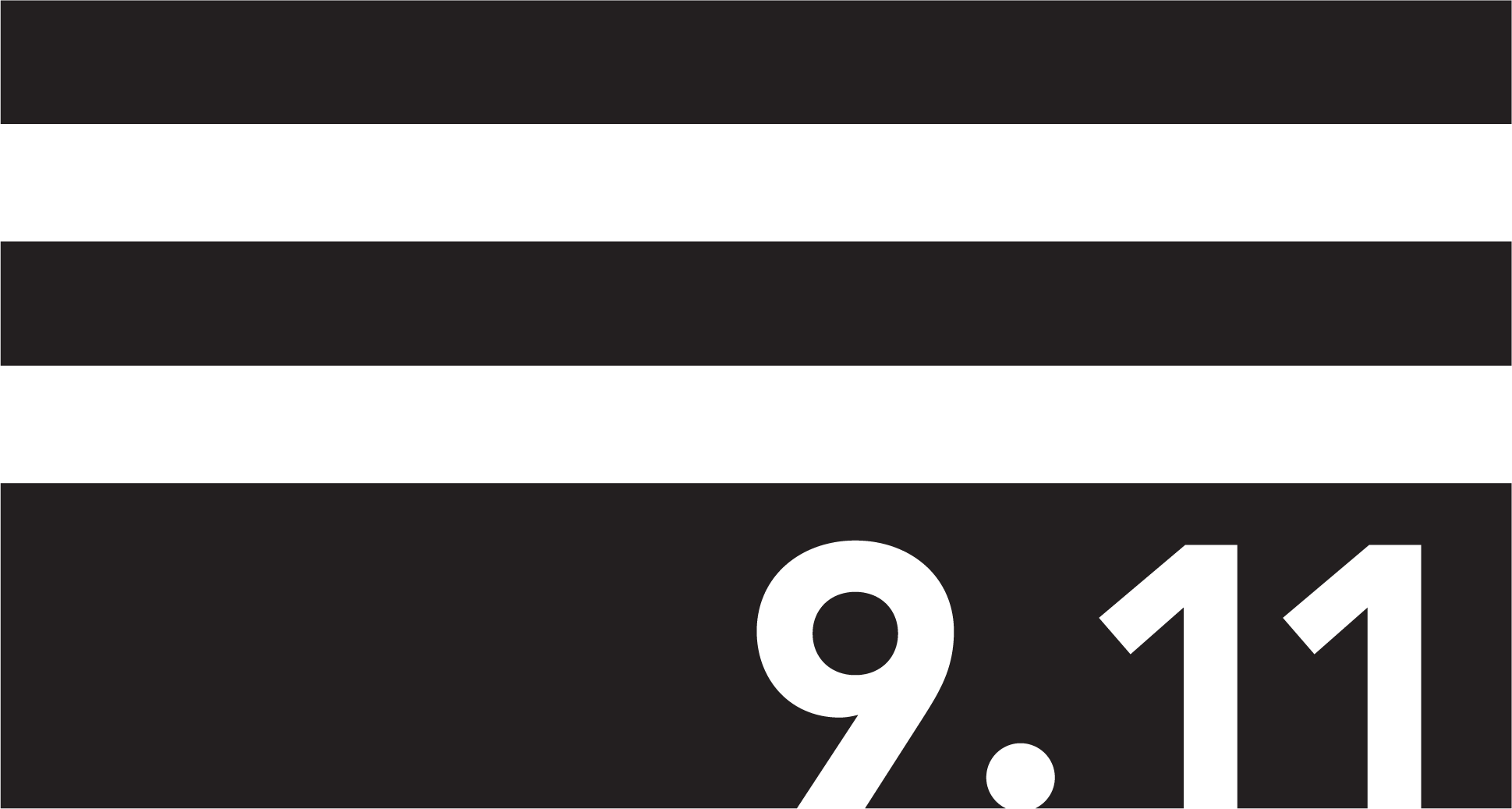 This webpage is archived for historical purposes and is no longer being maintained or updated. Please use the search bar to find more recent information.
This webpage is archived for historical purposes and is no longer being maintained or updated. Please use the search bar to find more recent information. 